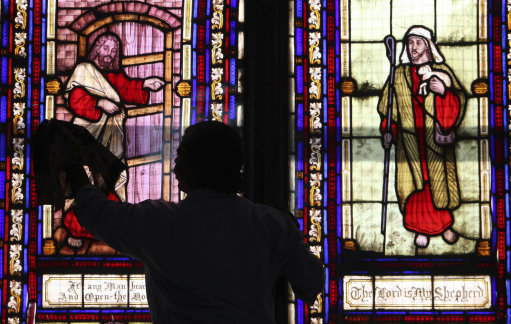Lord Carey's Comments – Are we a persecuted church?

Lord Carey's recent outspoken accusations about David Cameron and the Government's policy of "aggressive secularisation" have been controversial, to say the least. Not surprisingly, the Government has dismissed his comments, but interestingly, a number of Church leaders and Christian bloggers have also moved quickly to distance themselves from his opinions.
One of the statements from the former Archbishop that has attracted most criticism was his contention that Christians in Britain feel like a "persecuted minority". Respondents very swiftly climbed into the debate, saying that Lord Carey did not speak for them, and that it was an insult to the Christians who really are tortured and imprisoned for their faith in many other countries worldwide to be using such terminology. One point that was strongly highlighted was that there is a distinction between persecution and discrimination, and that persecution is an inappropriate word to describe the British context.
A fair point. But many of those who are propounding this argument are saying in the same breath that Lord Carey and the Church should be focusing their attention on addressing the needs of poverty in our society, and opposing Government cuts to welfare benefits.
I have to admit to finding this argument a teeny bit contradictory. Coming from Africa, and having witnessed poverty on a scale that is virtually unknown in this country, I confess that I still struggle to accept that term as an adequate description of the "least well-off " in Britain. After all, in the vast majority of countries worldwide, there is no benefit system, no welfare payments, no winter fuel allowance, and no state pension. Most of the world's population live in circumstances where they can only dream of such things, let alone consider them to be their right.
Alright, so everything is relative. But it highlights the dangers of making comparisons with other countries. As a pastor, I regularly encounter many in the local community who are at the bottom end of the socio-economic scale, but I would certainly not criticise them for believing that they were living in poverty, simply because in the developing world there are countless millions with far less. Neither does it stop me from giving my best efforts to alleviate local injustice and deprivation where I encounter it.
We can argue about semantics until the cows come home; we can point out that comparisons with other countries may not be particularly helpful either in terms of persecution or poverty. The point that the survey quoted by Lord Carey was making is that many British Christians feel like they are a persecuted minority, even if the suffering is greater elsewhere.
Now of course, Jesus made it abundantly clear that this is normal. Christians can expect to be marginalised and face opposition. The New Testament reminds us that, "Everyone who wants to live a godly life in Christ Jesus will be persecuted" (2 Timothy 3:12). In Britain the cost has hitherto not been as great as elsewhere, although the climate has certainly changed in the last twenty years. We now live in a climate where Christianity is tolerated as long as it is ritualised or privatised. The Government has no problem with the Church freely worshipping, and helping the poor, and providing education through its schools. Those are aspects of Christianity which society and the Government are happy to affirm. But where Christians espouse a different morality, and preach that Jesus is the only way, or bring "religion" into public life, that's where the attitude changes. Lord Carey's comments do, I think, helpfully highlight the fact that the Government speaks with a forked tongue in its attitude to Christians, but whether this constitutes persecution or not is beside the point.
The bottom line is that Christians must be prepared for marginalisation, discrimination or persecution because the tide of tolerance for Christian beliefs is ebbing in our society. I have been preaching for many years now that Christians in Britain must prepare for persecution. It's not what Christians want to hear. I have been ridiculed and mocked by church leaders in this country for saying so. But Jesus stated unequivocally that in the last days "you will be persecuted…and you will be hated by all nations because of me" (Matthew 24:9). And if it is the case that the Christian Church on the whole is not persecuted in Britain, is it perhaps because our Christianity is too worldly and there isn't a big enough difference between our values, principles and lifestyles from those of the rest of society to provoke any reaction?
Tony Ward is a Bible teacher and evangelist who was ordained in Zimbabwe. He ministers mainly in Cardiff and Bristol.











